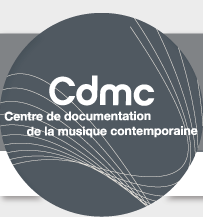Horizons of music in France 1944-1954 - 2nd session

At the Cdmc
The singular post-war landscape of music
The war years put paid to the supremacy of the Groupe des Six in the French musical landscape (Francis Poulenc was programmed at most of the Concerts de la Pléiade). However, the period of the Occupation also saw the appointment of Olivier Messiaen as harmony teacher at the Conservatory, dispensing classes that after only a few seasons saw the blossoming of a generation that no longer wanted to have anything to do with the language of the immediate past.
9h15: Introduction
Alain Poirier
9h30 Pierre Boulez’s First Piano Sonata
François Meïmoun
10h: Jean Barraqué, from Beethoven to Webern
Laurent Feneyrou
10h45: Pierre, André, Boris and the others…
Robert Piencikowski
11h15: The writings of Maurice Le Roux, Serge Nigg and Jean-Louis Martinet: a critical analysis
Pierre-Arnaud Le Guerinel
11h45: Through the eyes of a witness:
Michel Fano
14h: André Souris and the post-war period in Belgium
Valérie Dufour
14h30: Approaches to the invention of musique concrète
Marc Battier
15h: Francis Poulenc and the new generation
Nicolas Southon
Writing for images and for the stage
On the borderline between composer and arranger, rare were the young composers of the post-war period who did not write for the stage. The effervescence of theatre companies at the Liberation enabled already established composers (André Jolivet…) and those on the threshold of their careers (Pierre Boulez, Maurice Jarre…) to practice a multi-facetted craft.
15h45: Composers and the theatre: André Jolivet at the Comédie Française, Pierre Boulez with the Compagnie Madeleine Renaud – Jean-Louis Barrault, Maurice Jarre at the TNP
Catherine Steinegger
16h15: The cinema as a laboratory for sound and music
Philippe Langlois
17h15: Synthesis, par Hugues Dufourt








